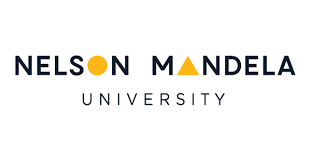Nelson Mandela University: International workshop on productivity challenges impacting the Southwest Indian Ocean
A group of marine scientists from all over the world gathered at Nelson Mandela University this week for an international workshop that sought to explore the potential role of atmospheric deposition in driving ocean productivity in the Southwest Indian Ocean.
Hosted by the University’s Centre for Coastal and Marine Research (CMR), the week-long gathering saw scientists from countries including South Africa, Tanzania, Kenya, Botswana, Mozambique, India, France, Greece and the United Kingdom trying to tackle a predicted crisis along the east coast of Africa as result of climate change.
The workshop was headlined by the United National Group of Experts on the Scientific Aspects of Marine Environmental Protection (UN-GESAMP), which is supported by 11 United Nations agencies, including the World Meteorological Organization (WMO) through its Global Atmospheric Watch (GAW) program. The Group has in the past convened several workshops resulting in numerous highly cited published papers in different areas of air/sea chemical exchange.
It served as a precursor to the week-long scientific symposium of the Western Indian Ocean Marine Science Association (WIOMSA) that will be held at the university next week, into which the workshop outcomes will go.
During the official institutional opening on Wednesday, the University’s Director for Research Management, Dr Kwezi Mzilikazi – on behalf of the Deputy Vice-Chancellor for Research, Innovation and Internationalisation Dr Thandi Mgwebi – said the workshop brought together experts in crucial disciplines that are needed to tackle the world’s major challenges.
“Hosting this workshop is among the many ways in which we, as the University, aim to build on the ocean sciences vision,” she said.
Speaking about the research chairs based at Mandela University, Dr Mzilikazi said the Chair in Ocean Science and Food Security, held by Professor Mike Roberts, is a major contributor not only to developing world class capabilities in West Indian Ocean science, but also to the quantification of the impact of climate change on the 60-million living on the shores of this ocean.
“We understand that food security in the ocean require skills and knowledge, ranging from ocean and atmospheric physics to bio-geochemistry, plankton ecology, trophic structures, fisheries, ecosystem functioning, management, science into governance and policy.
“To be of true societal jellying, assessments, solutions and future strategies to address this serious, multiple Sustainable Development Goals (SGD) challenge requires state of the art capability, and our Ocean Sciences Campus tries to contribute to that.
“However, such state-of-the-art capabilities … require high end skills sets needed to use these tools and interpret the details produced.”
The Western Indian Ocean (WIO) is one of the fastest warming oceans globally. While it is argued that the UN Climate Change Conference (COP26) was successful in raising the profile of climate change, emphasising the urgency to tackle greenhouse emissions, it failed to secure global net zero by mid-century and limit global temperatures to 1.5°C.
This implies that the WIO will continue in its trend to warm, and with this a reduction in ocean productivity. Roxy et al. (2016) points out an alarming decrease of 20% in phytoplankton in this region over the past six decades, driven by enhanced ocean stratification that is suppressing nutrient mixing from subsurface layers.
Future climate projections suggest that the Indian Ocean will continue to warm, driving this previously productive region into an ecological desert, which has major ramifications for fisheries. For example, WIO is responsible for 20% of the global tuna catch and, moreover, is the spawning grounds for these species. Overfishing has been a contributing factor to lower tuna stocks, but declines in food sources (prey), underpinned by phytoplankton, is becoming a significant problem.
This week’s workshop aimed to bring a new perspective to the WIO ecosystem flip-flop puzzle, namely, atmospheric deposition of nutrients, fuelled in part by biomass burning in southern Africa. This potential driver of the Madagascar blooms has not been previously considered. Given the societal importance of a possible ecosystem ‘flip-flop’, we also want to use this workshop to explore more effective ways of getting science into action.

